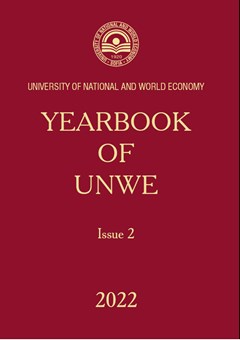A Need for New Energy Capacities in the Transition to Electric Vehicles in the Period Until 2030
Author: Evelin Videnov
Abstract
Switching to vehicles which use electricity is an irreversible process. It is considered the gradual transition to electric automobiles, and the provision of the needs for available electricity for their operation and use at the end of the period 2030. The following two scenarios are reviewed – of automobile manufacturers and of the stated state policies. According to each of the scenarios, the total number of estimated sales of electric vehicles, by year, is derived. From there, the total number of electric vehicles in the last year of the 2030 period is derived. Reducing the cost of batteries, which are a major component and add about 30 percent of the value of vehicles, will lead to a drastic reduction in the price of the production. For the purposes of this study, it is assumed that by the end of this period, there will be a swicth to the use of new technologies and this will reduce electricity consumption per 100 kilometers by at least 20% . The consumption of the Tesla Model 3 from 2021 of 14.9 kWh / 100 km is taken as a basis and from which, for the needs of this study, is assumed an average consumption in 2030 of 12 kWh for a car.
The average values for the annual runs for 2021 of all types of road motor vehicles, according to their purpose are used.
JEL: L62

